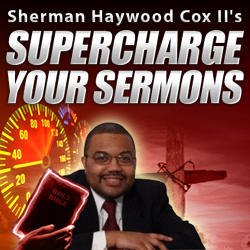Evaluating a Sermon Outline
There are multitudes of sermon outline sites. Some of them require you to pay for the outline, others are membership sites that give you access to thousands of outlines, and still others are completely free.
What The Blues Teaches Us About Preaching
There are multitudes of sermon outline sites. Some of them require you to pay for the outline, others are membership sites that give you access to thousands of outlines, and still others are completely free.

On this site and in other places, we spend a lot of time discussing the need to exegete the scripture for effective preaching. This is a very important dimension in …
The Three Intertwining Stories to Exegete for Effective Sermons Read MoreIt is pretty rampant. It steals the point from the people’s minds and reinforces the same tired point that you have preached every week. It gets the people to shout, …
The Irrelevant Celebration Read MorePreaching multiple texts can derail your sermon. It should be very clear to everyone who is listening what your main point and your main text is. If you have too many competing points or too many texts, the people will get lost and will simply choose one of the points to focus on, or check out and wait until you start whooping (or whatever kind of celebration you do) to check back in…
John Claypool, in Best Advice for Preaching said that when we use preaching to get something for ourselves, rather than to give as an act of love, then the sermon will have great tension. And I agree…
This is a common question. How do I preach doctrine. We have some beliefs as Christians that we need to preach. Doctrines such as the deity of Christ, Salvation by Faith, and perhaps the Trinity.
Related to this are the questions from various tradtions. For example, a Pentecostal asked about preaching on the Gifts including speaking in tongues. An Adventist asked about preaching the Sabbath. A Holiness person wanted to know about preaching on Biblical Holiness.
David Goatly writes:
Preaching and Violence Read MoreRelevant preaching today must confront directly the pervasive violence that infects the world. Relevant preaching for African American life must unapologetically challenge violence that is experienced within and inflicted from without their communities.
When exegeting a text of scripture, we often spend a lot of time looking at what is in the text. And this is right. We put forth a lot of effort to read the text in the original languages if we have facility in them. We put forth effort to look at the narrative, theological, socio-cultural, and other important dimensions of the text.

In the next seven posts we will take you step by step through a system of sermon preparation that is based in the African American Tradition. I have called it the “Supercharge Your Sermons” system. The first phase is to have preparatory planning.
In today’s postmodern world with its severe reaction to the certainty that modernity seemed to have, there is in some quarters a great conflict with saying anything. Everytime you say anything there are some who would question the very idea of saying anything. You cannot know…whether it is the parishioner who says, “You cannot know my circumstances” or the philosopher who says, “Your appropriation of Truth is always clouded by your social circumstances!” Or, you need to open your eyes to other possibilities.
The Push to Eloquently Say Nothing Read MoreIn the sermon, people will often turn you off if you don’t have a strong start. They will leave (either mentally or physically) if the middle doesn’t have places to capture their attention. But they will not remember anything if the end is not strong.
Saving the Best for Last – Closing the Sermon Read MoreHello,
I have decided to take my training at Vanderbilt Divinity School and my preaching experience, as well as my three years of being the primary contributor to SoulPreaching.Com, and boil it down to a 6 month online preaching course!!
The name of the program is: “Supercharge Your Sermons.” This promises to be the primary online preaching course that teaches preaching in the African American Tradition!
Evans Crawford writes: “There is a spiritual shift in the preacher’s soul so that the preacher does not preach at or to, but with the congregation.”
I was listening to a preacher this weekend preaching a sermon that began to sound like this:
The Bible Character is no good. The Bible Character did wrong. Let me tell you how bad this Bible Character was.
Then the preacher began to rail into the congregation.
Some of you are just like that Bible Character. You are mean like that character. You don’t have compassion. You don’t have the Love of God. You are just as bad and you better straighten up.
Then the preacher gave the appeal.
If anyone wishes to come to Jesus please come down.
Getting Heard the Importance of Indirection Read More